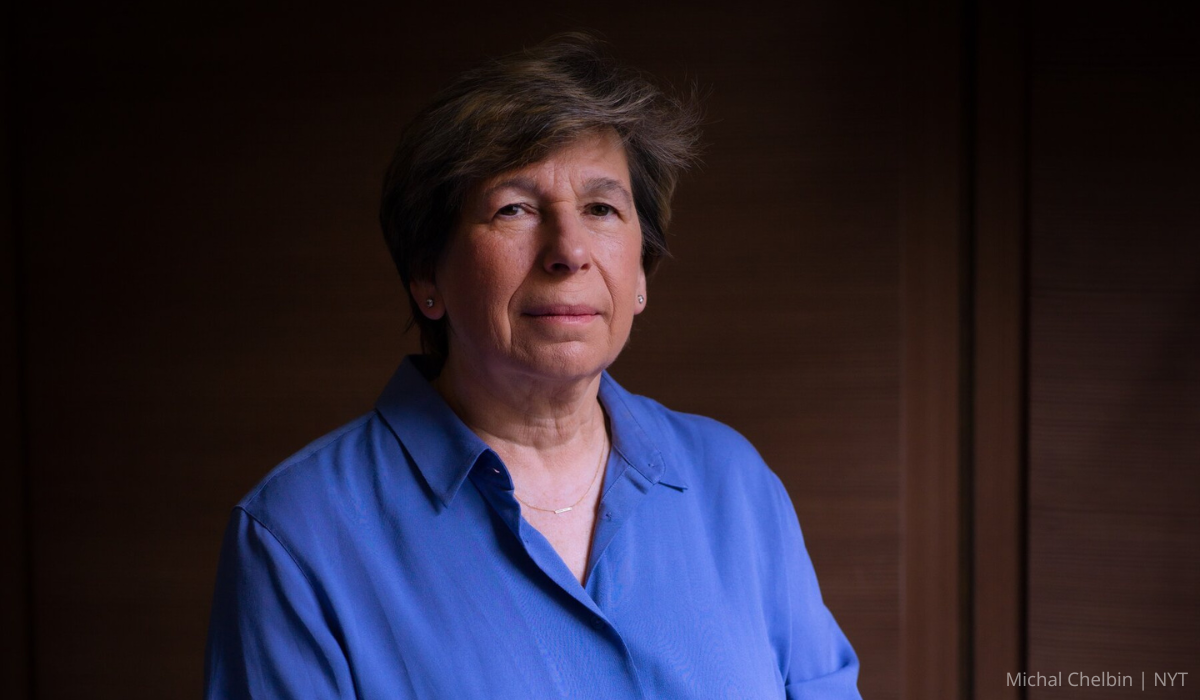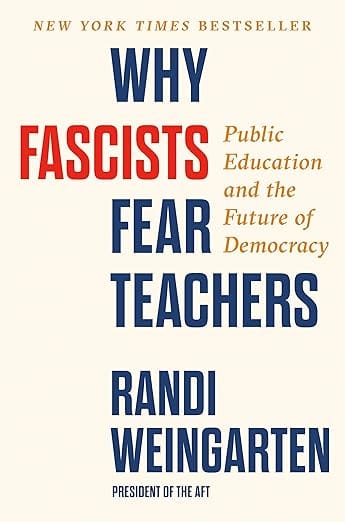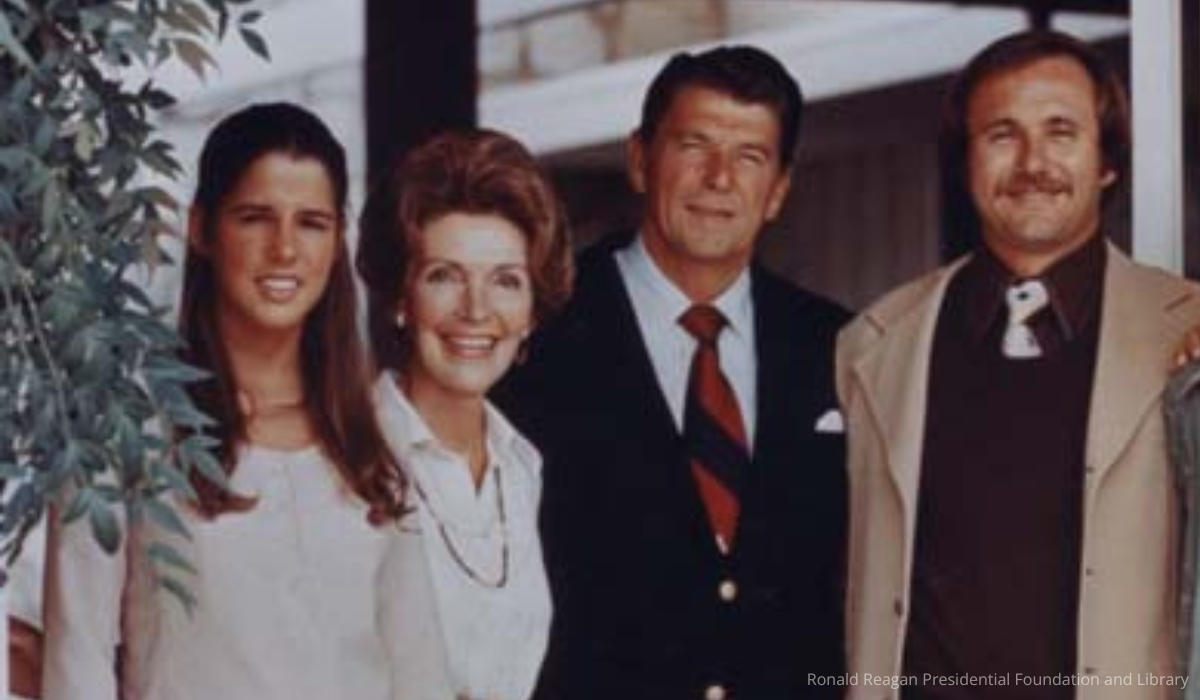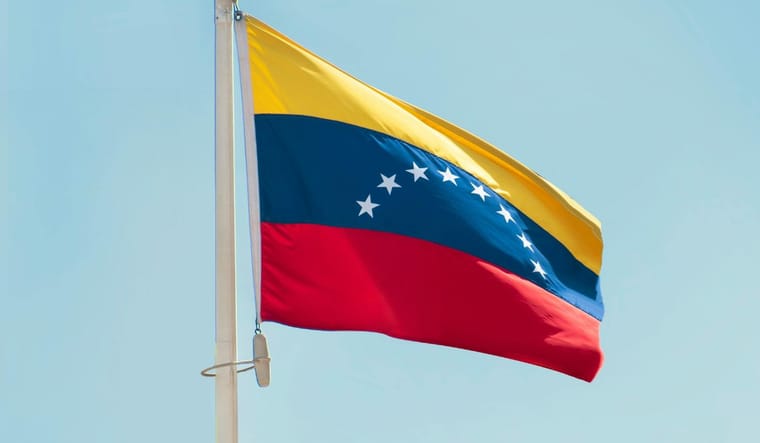Why Teachers Are Our Hope for the Future

Have you ever had a great teacher? Someone who went beyond the basic curriculum and showed you something about yourself that you hadn’t believed before? Someone who wanted to see you succeed not just in school, but in life?
Randi Weingarten, president of the 1.8-million-member American Federation of Teachers and author of the bestselling new book, Why Fascists Fear Teachers: Public Education and the Future of Democracy, wants you to think about that teacher. It can help you understand the essential role educators play in our democracy.
“Democracy requires people to be engaged, not apathetic,” says Weingarten. “It requires people to question whether somebody is lying or not. And that requires literacy, critical thinking, and an ability to see different sides.” These are the skills that enable us to see past propaganda and scare tactics. These are the skills we learn thanks to our teachers.
This week, many of us have been thinking about the preciousness of our democracy and how quickly our rights, like free speech, can be threatened. That’s why The Sunday Paper sat down with Weingarten to learn more about her new book, and why teachers should give us all hope for the future of our country.
A CONVERSATION WITH RANDI WEINGARTEN
Why this book, and why now?
I wrote this book for two reasons: One was a warning, and that’s why I use the term fascist very intentionally in the title. And the second was to answer the questions, What’s the antidote? What’s the hope? What’s the response? And frankly, that’s where education and teachers come in.
I’m a social studies teacher. It was clear to me near the end of the 2024 election how little people really knew about democratic backsliding, fascism, and authoritarianism. We’ve had this tremendous bubble of economic innovation, a growing democracy, and freedom. People didn’t know what this backsliding in America meant. When General Kelly gave a warning sign about what could happen if Donald Trump became president again, it was immediately dismissed as political as opposed to a warning. So, I thought I needed to be a teacher here and talk about fascistic behavior and what it really is so that people would know.
But also, my heart connection for writing this book is that every single day, teachers—regardless of what is thrown at them, regardless of whether they have the books or the conditions they need—are making a difference in the lives of kids. I wanted to lift that up, both in terms of what teachers do to meet kids’ emotional and social needs every day by creating a safe and welcoming environment, but also because they’re doing what our founders really wanted us to do. Talk about patriotic education; the founders understood that critical thinking was absolutely imperative if we were going to stop tyranny again. They understood that to stop tyranny, we needed to teach kids how to think and problem solve.
And those things—creating a welcoming and safe environment, creating the conditions for pluralism, and teaching kids to discern fact from fiction so that they can engage in the habits of democracy—are the salvation of our country.
We’re seeing heated debates over book bans and what teachers are allowed to say and teach. How are these struggles connected to broader threats to democracy?
This notion of book banning, erasing history, and smearing people for thinking differently than you do—this sense that there’s only one way to think and if you don’t agree, then you’re bad—that’s part of the culture wars that we’re dealing with right now. And that undermines free thought and free expression.
We just saw this in terms of what happened with Jimmy Kimmel. You see it with what happened in the aftermath of a very horrible assassination. But this is when free speech is more important. And yes, there’s a lot of speech that can be very noxious. But I’m going to fight for somebody’s right to say it, as long as they’re not violent and as long as they’re not inciting.
All of this is part of having a democracy as opposed to a strong man who makes the decisions.
What is one concrete way all of us can support teachers right now, whether we have school-age children at home or not?
I talk a lot about this in the conclusion of the book, because I want this to be about hope and about a way forward.
If you have school aged children, please get involved with your school. It is such an important way to create community for yourselves and your kids and the and the bigger community of what we call school. If you don’t have school aged children, you can still get involved with the school community or your broader community. Do something to get involved in your kid’s future and your community’s future. This is how to help our society be cohesive and not break apart into these different fiefdoms, like what we had before enlightenment.
Equally important, feeling part of community helps us understand that if we disagree with somebody else, we’re not each other’s sworn enemy. We can have fierce conversations, fierce disagreements. I believe we should have secure retirement for all. I believe in higher wages for people. Other people might say, “No, we can’t afford it.” And I can have a fierce argument about these topics, but that doesn’t make the person who disagrees with me a horrible person. They just disagree on a core economic belief.
We can’t make each other each other’s enemy, because that breaks apart society. And if we break apart society, we’re going back to the time of kings and monarchs and castles—and that’s not who we are.
What do you say to teachers who are disheartened right now?
This is part of what drove me to write this book. I wanted to write a book that was a love story to teachers because teachers prop up our society. Teachers, like parents, are about our future. Every child we teach, we are hoping that child becomes a young adult who soars. What other profession does that each and every day, regardless of what’s thrown at them?
I want teachers to see themselves in this book. I write about Karen Lewis. I write about Abby Clemens. Those are names that people may know. I write about Lyndon Johnson, not as president but as a teacher in the hill country in Texas. I wanted to write about people who many of us don’t normally think of, people who are nameless and faceless except to the kids that they teach and who they lift up.
That is why fascists fear teachers. Because teachers are the ones who help young people have the skills and knowledge for a future. And in public schools, a teacher’s mandate is for all kids. We ensure that every child has the skills and knowledge they need so that they can make their own American dream.
Were there any stories from teachers you’ve worked with over the years or who you spoke to for your book that have stuck with you?
Abby Clemens was a teacher at Sandy Hook and shielded her kids. There but by the grace of God … and you can finish that sentence. She just retired from teaching this year and is running a group called Teachers Unify Against Gun Violence, and she’s fighting every single day to stop gun violence.
I talk about Ryan Richmond, who’s a history teacher in New Hampshire and had the courage to actually challenge the “divisive concepts” law that basically stopped social studies teachers from teaching honest history because it was so vague teachers had no idea what they could or couldn’t teach.
I also tell a story about my own life in this book. I was not a great student. I didn’t do my homework. My English teacher, Mr. Swift, pushed me to be the production manager of the school play. I’d worked in stage crew. But pushing me to be the production manager created for me a sense that I could problem solve.
Mr. Swift saw in me what I didn’t see in myself.
That’s what teachers do.
Please note that we may receive affiliate commissions from the sales of linked products.




